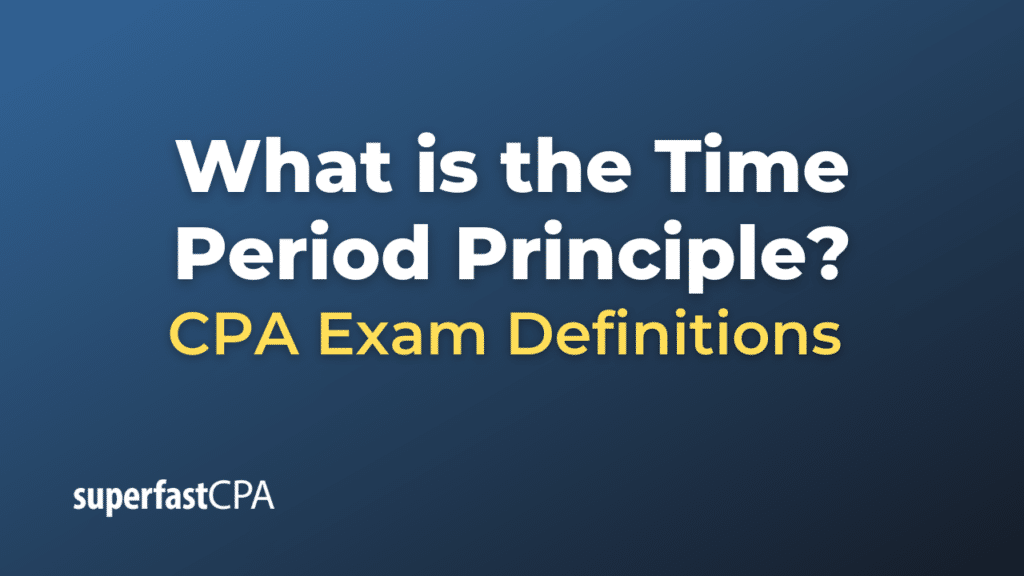Time Period Principle
The Time Period Principle, often referred to as the Periodicity Principle, is an accounting principle that suggests that an organization should report its financial performance and position over a standard time interval. This principle is foundational to periodic financial reporting and ensures that stakeholders receive regular and consistent information about a company’s financial status.
The Time Period Principle allows for the division of a company’s long and continuous life into shorter periods, typically months, quarters, or years. These shorter intervals enable stakeholders, such as investors, creditors, and management, to get timely feedback about how the company is performing.
Key points regarding the Time Period Principle:
- Frequency: Most companies prepare and issue financial statements annually at a minimum. Publicly traded companies usually also report quarterly (known as interim reports).
- Consistency: For comparative purposes, it’s crucial that the time intervals used are consistent from period to period. For example, if a company reports quarterly results, each quarter should represent three months of business activity.
- Accrual Accounting: To properly match revenues with expenses during a reporting period, companies use the accrual basis of accounting rather than the cash basis. This ensures that financial results reflect business activities and financial events in the appropriate period, regardless of when the cash is received or paid.
- Adjustments: At the end of each reporting period, adjusting entries are made to account for events that have occurred but are not yet recorded, such as unpaid expenses or uncollected revenues. These adjustments ensure the financial statements are accurate and complete.
Example of the Time Period Principle
Let’s delve into a practical scenario that will illustrate the Time Period Principle in action.
Scenario: Sunshine Toy Store
Background: Sunshine Toy Store is a small business that started its operations on January 1, 2023. The owner, Mr. Johnson, decided to prepare monthly financial statements to closely monitor the store’s performance.
Monthly Reporting:
- January:
- Sales of toys amounted to $20,000.
- Rent for the store was $2,500.
- Salaries paid were $5,000.
- Inventory purchased was $10,000, out of which $7,000 worth of toys were sold.
- February:
- Sales of toys: $25,000.
- Rent: $2,500 (the lease agreement requires monthly payments).
- Salaries: $5,000.
- Additional inventory purchased: $15,000. This time, only $5,000 worth of toys were sold from this new stock.
- Year-End Reporting: At the end of December, after preparing monthly statements throughout the year, Mr. Johnson prepared an annual income statement and balance sheet for the year 2023. This summarized the store’s performance for the entire year, providing insights into annual sales, total expenses, and the net profit for the year.
Outcome: Thanks to the Time Period Principle, Mr. Johnson was able to monitor the store’s performance and financial health on a consistent monthly basis. If he noticed declining sales in a particular month, he could immediately implement marketing strategies or sales to boost performance in the subsequent months.
By adhering to the Time Period Principle, Sunshine Toy Store was able to make more informed and timely business decisions, showcasing the value of periodic reporting in managing a business effectively.













